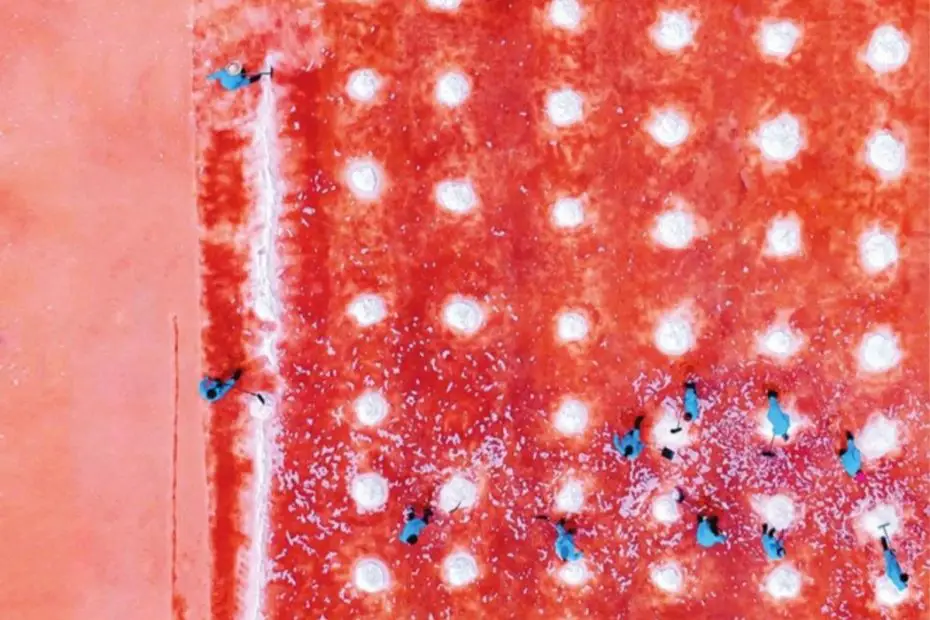Have you seen these colorful pictures from social media? Even CNN wrote an article about it.
This place is Yuncheng Salt Lake, China’s colorful ‘Dead Sea’.
Located in the city of Yuncheng(运城)in Shanxi(山西) province.
These saltwater lakes have long been a hidden gem, known for their vibrant colors and high salt content.
The main district of Yuncheng city is named after this salty lake, salty lake district (盐湖区) and this is where I was born :)
Join me and dive into the story of Yuncheng’s salt lakes and discover what else is a must-see for any traveler to Yuncheng.
What is Yuncheng Salt Lake used for?

Yuncheng Salt Lake, also known as Xiechi lake, is a sight to behold.
It is the largest natural saline lake in Northern China and an important source for salt production.
How To Get There and Where To Live
| Arrival Location and Transport | Taxi Details | Duration | Cost |
|---|---|---|---|
| Yuncheng Zhangxiao(张孝)Airport To Salty Lake-Book Your Airplane Tickets | Taxi | 35mins | ¥40-50 |
| Yuncheng North Train Station(High Speed Train) To Salty Lake-Book Your Train Tickets | Taxi | 35 mins | ¥35 |
| Yuncheng Train Station (Old) To Salty Lake-Book Your Train Tickets | Taxi | 15 mins | ¥15 |
My Recommended Hotel
Hengze Highs Hotel
This hotel is a beloved local gem, offering the luxury of a 5-star experience at an affordable price. It’s conveniently located near a popular shopping mall and supermarket.
A stroll to Bin Hu Street(滨湖大道), known for its influencer vibe, treats you to scenic views of the lake on both sides. Alternatively, driving down this street also promises a unique and enjoyable experience.

Quick History Review:
Ming dynasty, the army of the Ming began using its salt rights, known as yan yin, which were initially redeemable only at the Xiechi Lake, to pay for transporting provisions to Chinese soldiers stationed on the Great Wall.
This policy benefited the Shanxi merchants and they were able to accumulate a substantial amount of wealth for themselves.
Ultimately, it led to their dominant position in the Chinese financial market during the Qing dynasty.
How does Yuncheng Salt Lake change color?
According to Hong Kong Baptist University geography professor Bernie Owen, they have to do with the species of animals and plants living in the water.
If you’ve got brine shrimps, you tend to get red colors.
There’s a microscopic animal called a rotifer, and that will give a purple color. Purples you also tend to get with green algae.
And then green or orange occur in very saline lakes.
These blooms appear in hues of crimson, purple, neon blue, and green, which becomes more vibrant on days when the temperatures are high.
What activity can you do at Yuncheng Salt Lake?
I had tried all these activities below when I was a teenager. It was great fun especially as a group or with your family!
Book Tours And Get Tickets Here!😊
Saltwater floating no sinking:
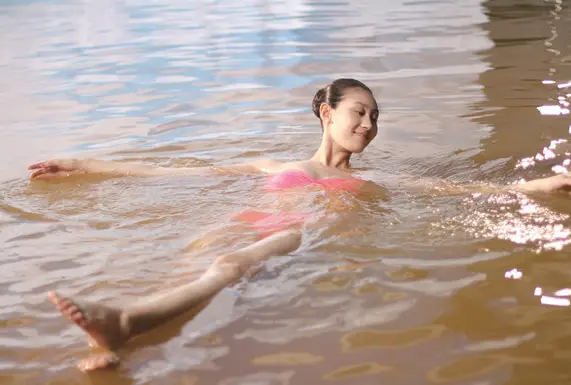
Saltwater floating in the Dead Sea resort can provide you with a quiet place to relax, rest, and enjoy.
The Dead Sea contains various beneficial minerals and trace elements that can help to eliminate tension, regulate blood pressure, improve blood circulation.
(Tip: It stings when the salt water touches your eyes even just a tiny bit, there will be towels given out for eyes protection.)
Mud therapy:

Salt lake black mud is formed by sedimentation over thousands of years, containing rich minerals and trace elements, as well as beneficial organic matter and nutrients for the human body.
During the black mud therapy, the minerals and nutrients in the black mud can promote skin metabolism, reduce freckles, acne and other skin diseases, keep the skin elastic, shiny and rosy.
After each black mud therapy, you will obviously feel that the skin is not only whiter and tenderer but also more elastic.
Mineral Salt Therapy:

Relax and rejuvenate by lying on a warm pile of salt from the Dead Sea, or by covering your body with hot salt for about 20 minutes to take full advantage of the salt’s high permeability.
This allows the various effective elements and minerals to penetrate into your body, promoting blood circulation.
This can help treat internal diseases, regulate internal organs, and balance your Yin and Yang energy.
Summer and Winter in Yuncheng Salt Lake:
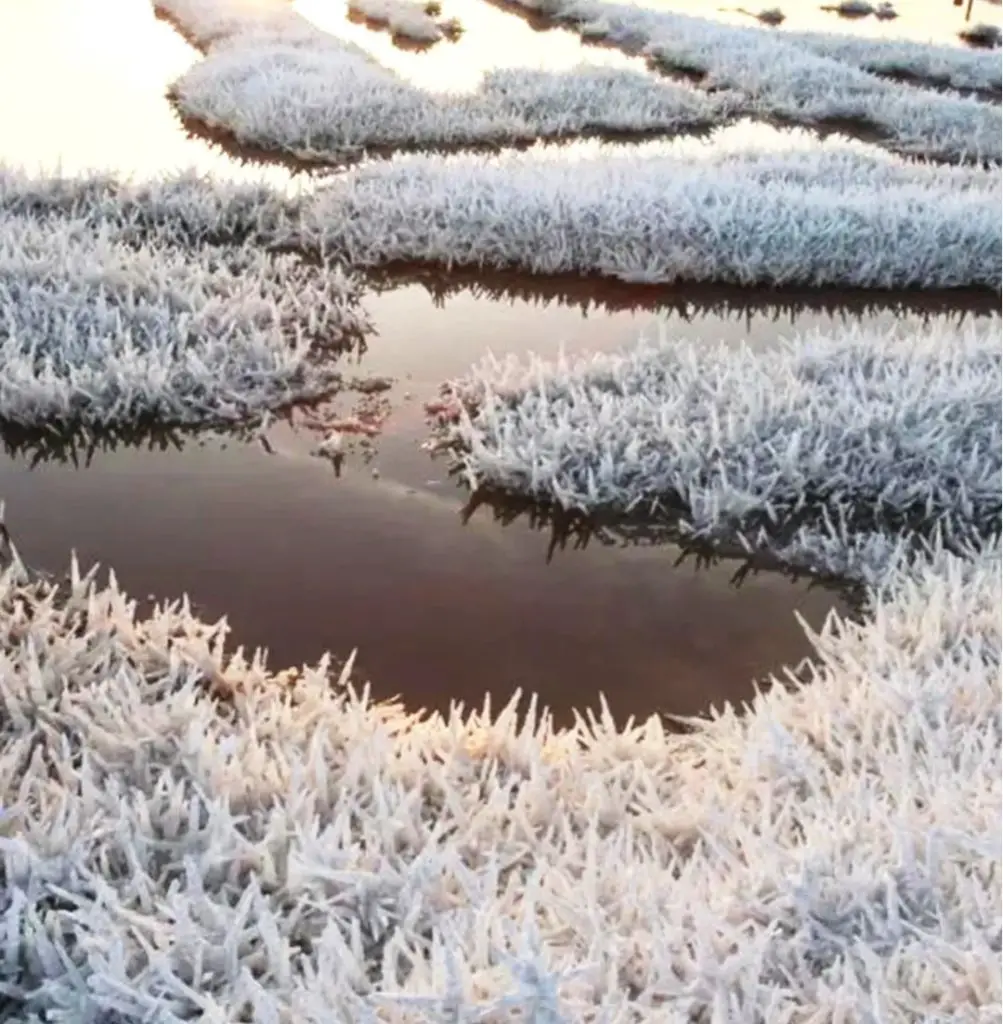
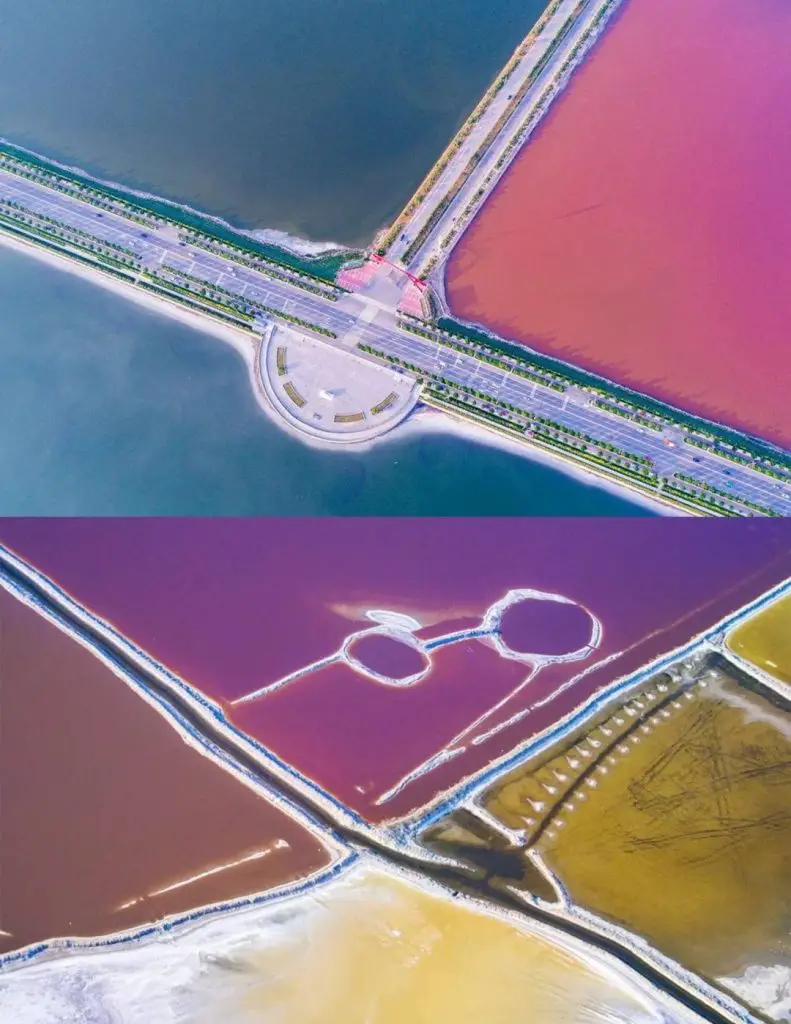
- In summer, the lake looks like a box of jewels spilled by a giant. This is due to blooms of the algae Dunaliella Salina.
- In the winter, the colors of the lake change to white and crystal-like structures called mirabilite, also known as Glauber’s salt, form on the surface. These structures are made of a type of sodium sulfate and grow when the temperature is below -5 degrees Celsius.
What else you must see in Yuncheng?
Yuncheng is not only known for its salty lake, but its ancient temples are also renowned for their grandeur and beauty.
Haizhou Emperor Guan Temple-解州关帝庙
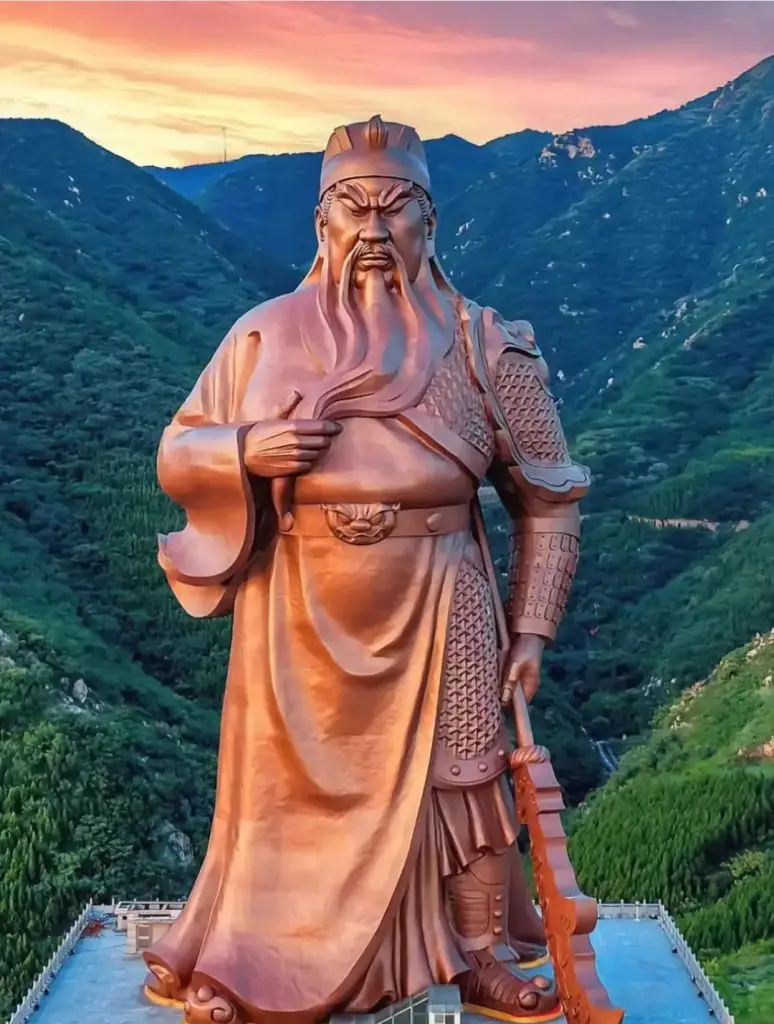
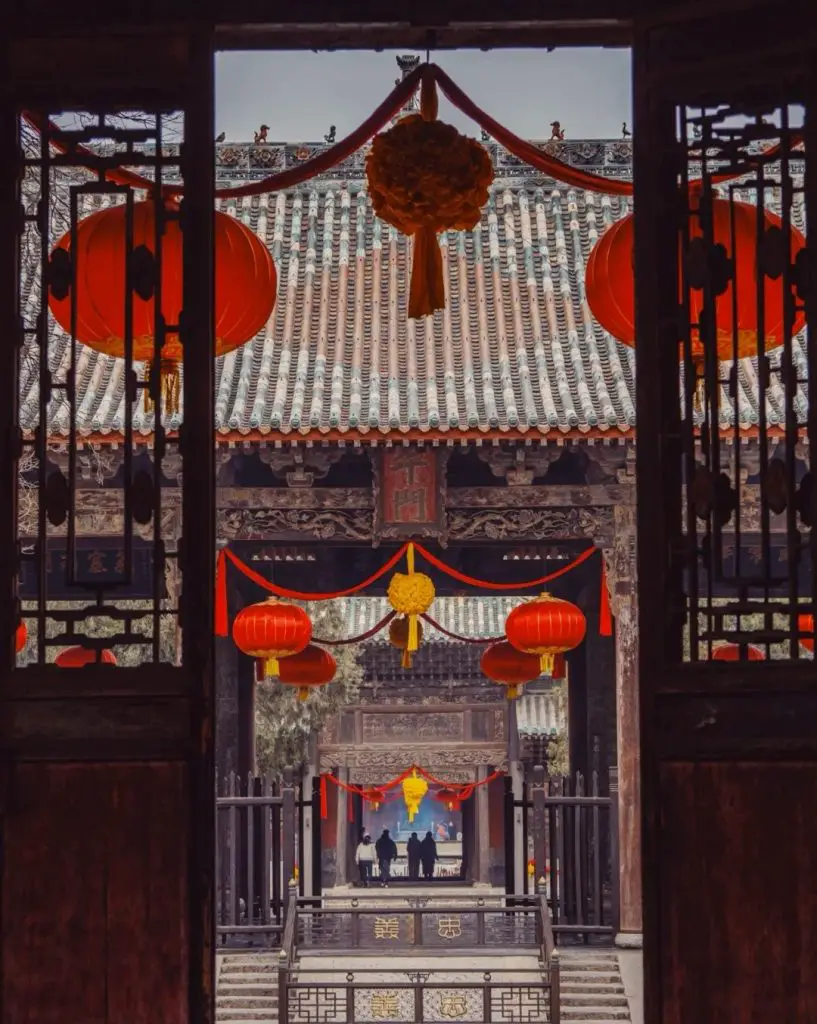
Haizhou Emperor Guan Temple is the largest Emperor Guan Temple 1 (关帝庙) in China.
The temple is dedicated to the worship of Guandi, a god of war and literature in Chinese folklore, making it an important religious site for both locals and tourists.
Who is Guandi?
Guandi, also known as Guan Yu or Guan Gong, is considered the god of loyalty, bravery, and righteousness.
- He is revered by many Chinese people, particularly those in the business community, the military, and the police force, as he is believed to provide protection and bring good luck.
- He is also worshipped by martial artists, as he is believed to bestow strength and skill in battle.
- Additionally, Guandi is also considered as a god of wealth, and many businessmen and merchants will pray to him to bring them prosperity and success in their business.
Where do you see Guan Gong worship in China?
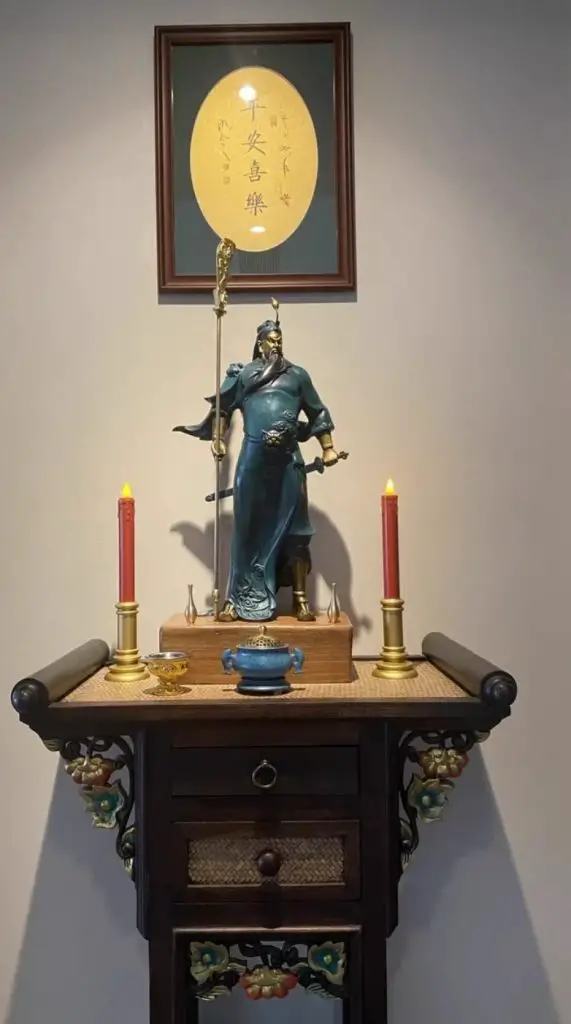

- One of the areas where it is most commonly found is in the southern provinces, such as Guangdong, Fujian, and Jiangsu. These provinces have a long history of trade and commerce, and Guandi is considered to be the patron saint of businessmen and merchants.
- Another area where the worship of Guandi is prevalent is in the Sichuan province, where there are many famous temples dedicated to him, such as the Temple of Marquis Wu in Chengdu.
- In addition, Guandi is also widely worshipped in Taiwan and Hong Kong, where many Chinese immigrants have settled, and they bring the culture and customs with them.
In general, you can find Guandi temples all over China, but the above-mentioned areas are known to have a large number of them and where the worship of Guandi is particularly popular.
Yongle Palace-永乐宫

The Yongle Palace, also known as the Palace of Eternal Joy, is a must-visit destination for art and history enthusiasts.
Located in Ruicheng County, about 68km from the Yuncheng urban area, this palace is a treasure trove of ancient Chinese art and architecture.
One of the main highlights of the palace is the Yuan Dynasty murals, which are considered to be some of the finest artistic treasures in China.
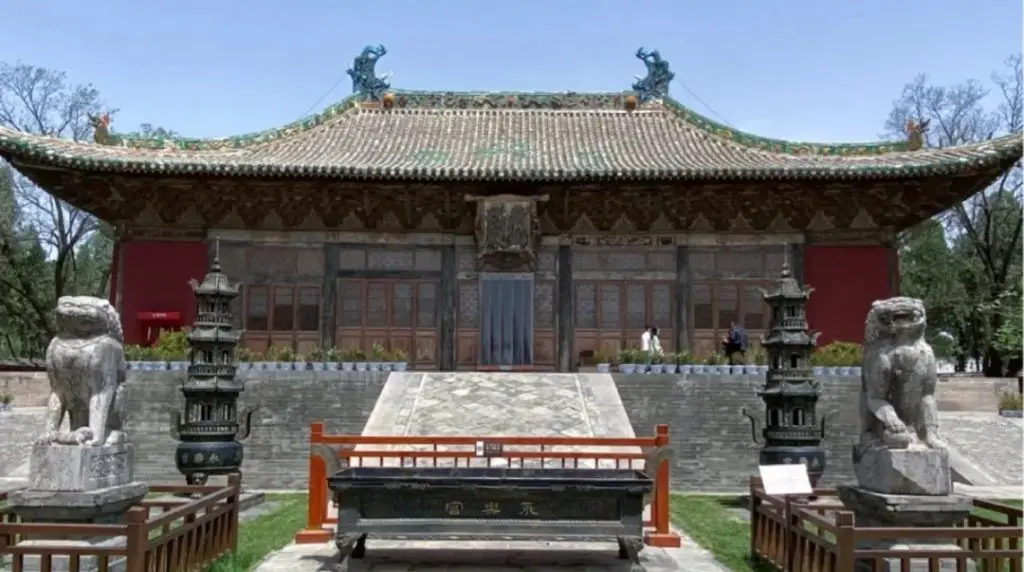
The palace was moved brick-by-brick and painting-by-painting in the 1950s to allow for the construction of Sanmen Gorge Reservoir on the Yellow River.
Fortunately, the priceless murals were well preserved in the move.
If you’re lucky, you might even spot one of the eight Taoist immortals, Lu Dongbin, who was born in the town of Yongle and the palace was built to commemorate him!
So, pack your bags and get ready for an exciting journey through Chinese art and history at the Yongle Palace.
Must try local delicacy:
麻花: máhuā:
A twisted fried dough sticks, it was originally a palace food.
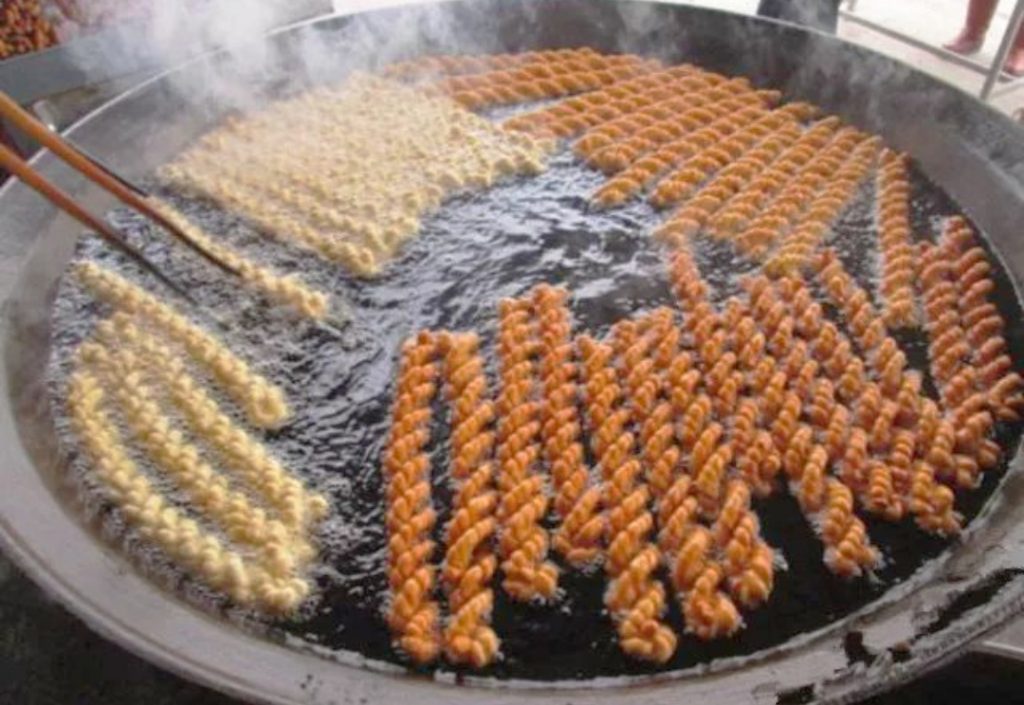
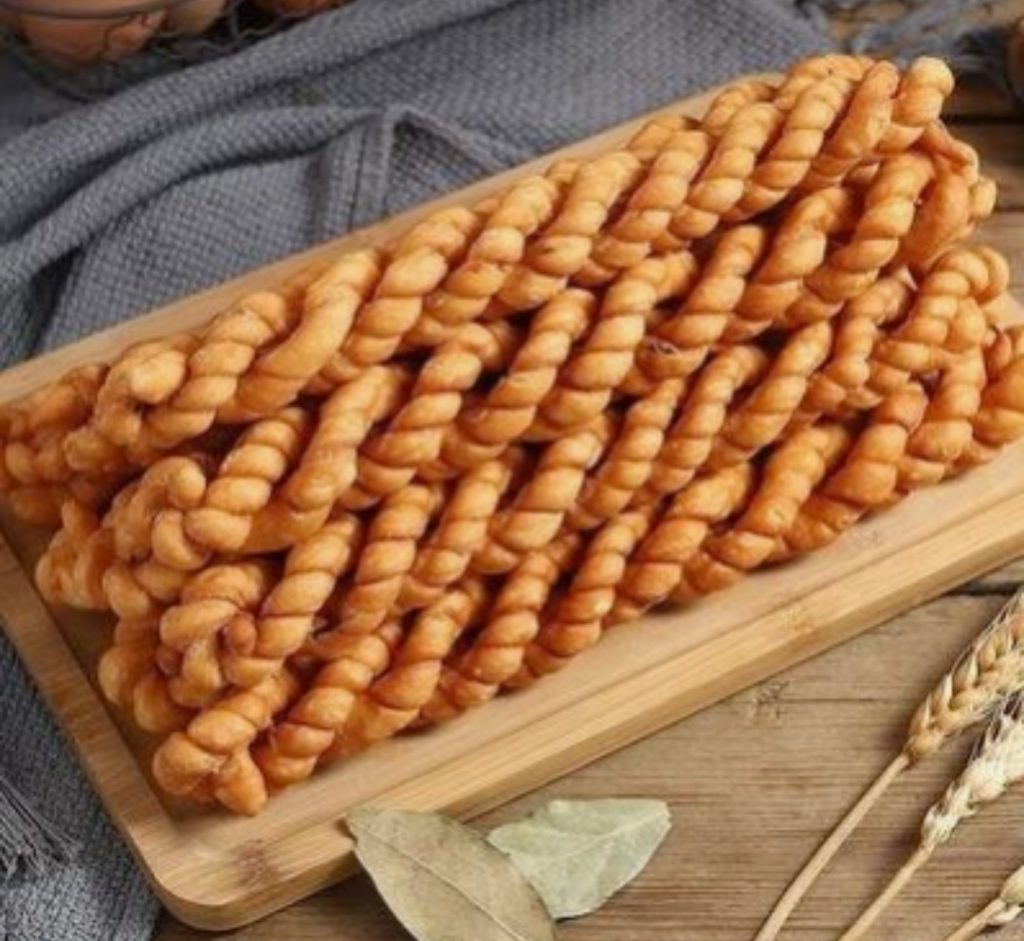
A businessman from Xiwei village in Zhaidian Town brought it back to his hometown of Yuncheng and started selling it.
Later, the businessman continuously improved his production techniques, changing the máhuā from two strands to three strands, and then twisting and deep-frying it, resulting in a golden-yellow, fine-threaded and crispy texture.
It is often served with pepper leaves and sesame.
(It’s something I usually eat at Chinese Spring Festival.)
煮饼: zhǔbǐng:
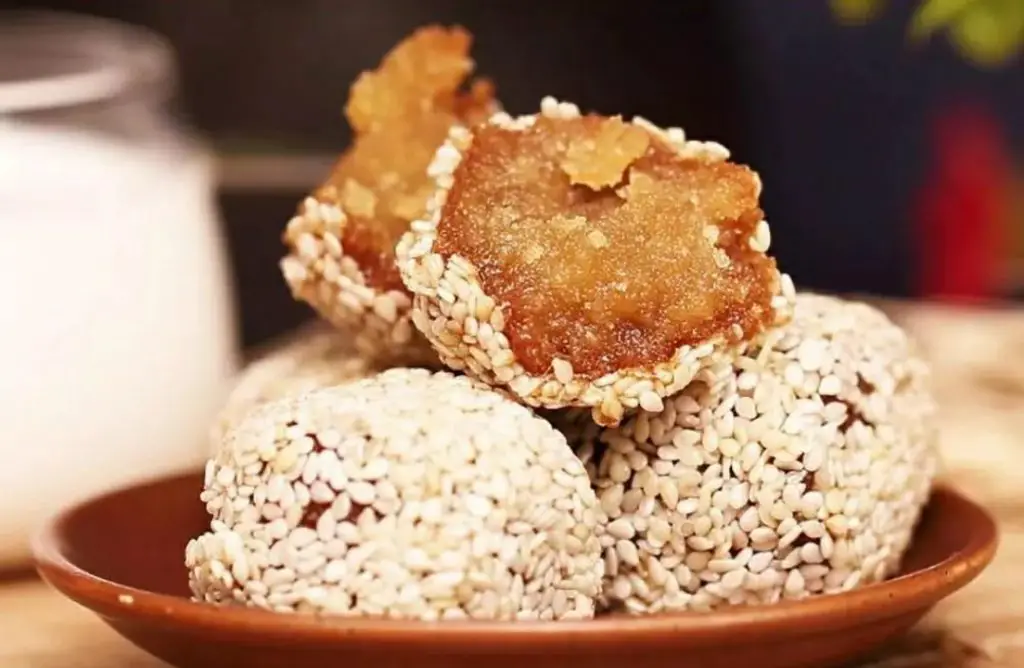
It is coated with sesame on the outside and has a distinct chestnut and dark red filling.
It can be pulled into several centimeters long fine threads, and it tastes crispy, sandy, fragrant and sweet when eaten.
蜜饯山楂: mì jiàn shān zhā:
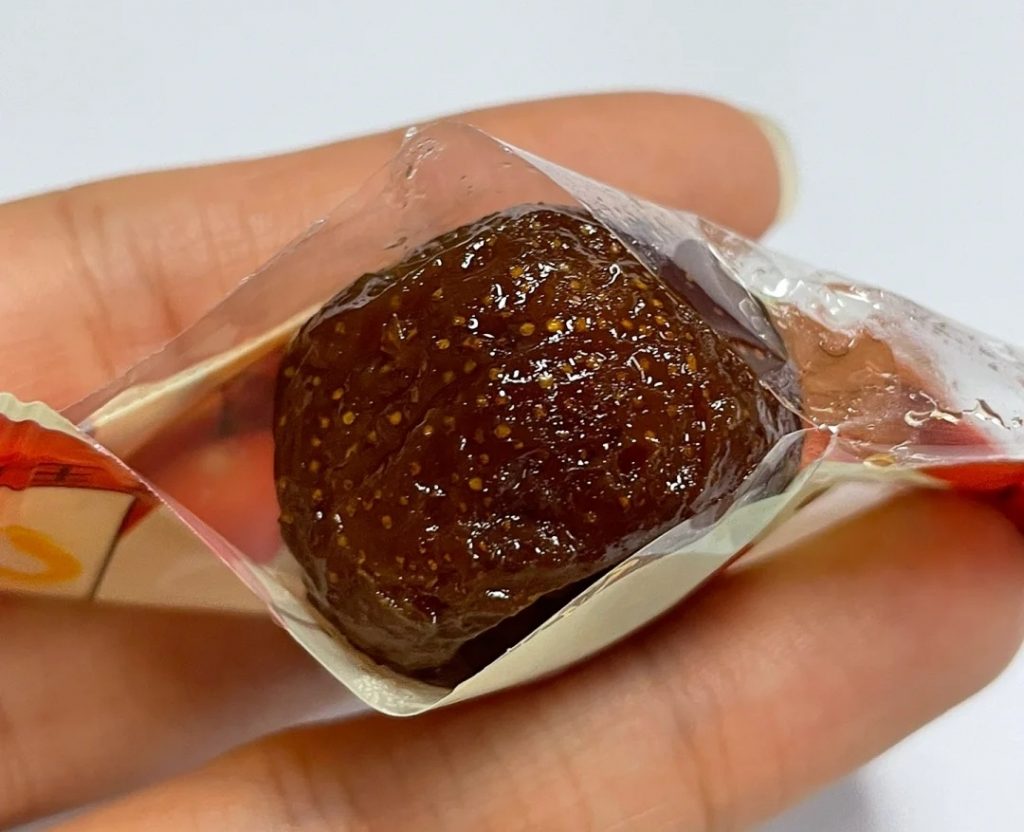
It is a type of Chinese fruit preserve or sweet made from hawthorn fruit.
It’s a tangy fruit preserve that can be eaten as a snack.
It’s also believed that it can aid digestion and help with weight loss.
There is one more nationally famous delicacy from Wenxi, Yuncheng, learn about it here. (go to number 8)
Final Words:
China is working to get Xiechi Lake in Yuncheng listed as a UNESCO World Heritage site.
Fun Fact: China currently has 56 UNESCO World Heritage sites, making it second only to Italy.
Tip:Xiechi Lake is not yet as popular as other tourist spots in China. Go before it gets crowded!
Frequently asked questions:FAQ
We can learn more from listening to the questions of others than our own answers.
-YANG CUI
Is the Dead Sea in China?
No, the world famous Dead Sea is not in China. The Dead Sea is a salt lake located between Israel and Jordan in the Middle East.
It is one of the saltiest bodies of water in the world and its high salt content makes it difficult for fish and other aquatic life to survive, hence its name “Dead Sea”.
The Dead Sea is also known for its rich mineral content, which makes it a popular destination for people seeking to improve their skin health and rejuvenate their skin.
But China got its own dead sea which is in Yuncheng City, Shan Xi province. The pictures from there got viral on social media.
Do any fish live in Salt Lake?
No, fish do not live in salt lake.
The lake has high concentration of dissolved minerals, particularly salt, which makes it inhospitable to fish and most other aquatic life forms.
However, some brine shrimp and brine flies can survive in salt lake.
The lake also has a high level of dissolved minerals like magnesium, potassium, and bromide which may support certain microorganisms and other organisms.
Can I swim in Dead Sea?
No, you can not swim in dead sea due to the high concentration of salt in the water, which can cause irritation to the skin and eyes.
But you can float in it just for relaxiation and fun.
Why don’t we drown in Dead Sea?
We don’t drown in it because its high salinity makes it denser than regular seawater, so humans and other objects naturally float on its surface.
